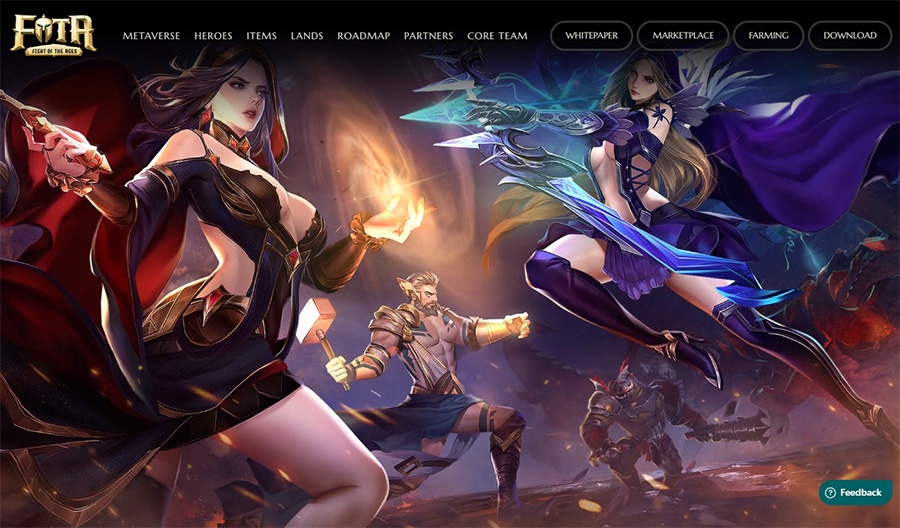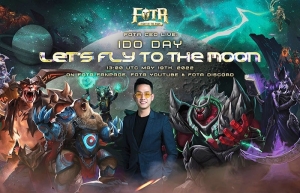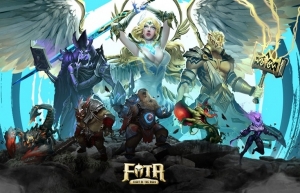GameFi developers insist quality can aid comeback
According to the GameFi September 2022 Report, published a fortnight ago by Footprint Analytics community, that month was a rough one for the industry with token prices and investment in the sector cut to a small fraction of what it was just months ago. The report says the number of related projects grew by 1.3 per cent in September, an all-time low for the industry.
The total volume of GameFi funding dropped 40 per cent from the previous month to reach an all-time low since the beginning of the bear market. Meanwhile, the amount of funding raised in the space dropped 20 per cent, from $448 million in August to only $133 million in September. “The collapse in funding will have trickle-down effects for studios, institutions, and developers, who will likely be much more conservative this winter,” the report stated. “If trends continue, finding sources of income to keep projects alive will be difficult. Unsurprisingly, there were almost no new GameFi projects launched in the period, and no major ones at all.”
The volatility of the crypto market impacted the health of the industry. Besides objective reasons from the economic crisis and uncertain energy prices, one of the reasons that makes GameFi less attractive is that the financial factor is often more important than the user experience.
 |
| GameFi developers insist quality can aid comeback |
“GameFi products are often created by financial engineers who want to get rich quick, not entirely from publishers with experience in making timeless games,” said Maciej Burno, who is spearheading a new metaverse business for Polish gaming studio Reality.
The fluctuations of the global GameFi market have also caused significant disturbances to the Vietnamese market, although there has not been a recent official research result on its decline here. However, some gamers say they are no longer interested in GameFi’s play-to-earn or move-to-earn models that were popular with young people earlier this year. “Token prices have plummeted over the past several months. Spending a lot of time playing games but earning only a fraction of what it was before makes me feel depressed,” said Hoang Be, a 23-year-old gamer from Hanoi.
Meanwhile, Axie Infinity, a Vietnamese game from unicorn Sky Mavis, was one of the world’s most valuable non-fungible token projects in 2021. But it has lost 11 per cent of its market share in gaming volume, according to the Footprint Analytics Report. At its peak late last year, there were nearly 2.7 million monthly Axie players, but after the game was hacked in March and stripped of around $600 million, the active number of users dropped to around 700,000.
Although the number of players leaving the market is increasing, many game developers in Vietnam think that the current difficult period is just another challenge, and many have faith in a relatively quick recovery for the GameFi industry.
“Blockchain games are still fertile ground for the next few years with capable and visionary game developers. The time of downtrend is also a time for them to focus on developing the best product to be ready for the next wave of the market,” said Quang Nguyen, CEO and co-founder of MetaDOS.
He added that while the decline of the market is unsustainable for both investors and game developers, investment flows could still be within reach for projects of good quality and with a long-term development strategy. “MetaDOS values quality and player experience the most. We have listened to feedback from players throughout the launch and testing process to improve the product further,” Nguyen said.
GameFi investor William Do, who is also CEO of Hobbit Investments, has noted the explosion in both the number of related projects, investors, and players over the years. He owns a gamer community project called Djinn Guild that aims to maintain and expand the GameFi community in a more advanced manner.
“We aim to establish a connection between players, guilds, communities, and game publishers with the hope of promoting a speedy recovery of the market,” said Do.
 | Reaching a new stage of blockchain game funding Maintaining core values and providing transparency are top priorities for blockchain-based ventures like Fight for the Ages, as they attempt to take bigger steps in their development journey. |
 | Game developers looking for long-term strategy Many Vietnamese game businesses assert that blockchain will contribute to purifying the market and steering them to more sustainable and long-term value. |
 | Gamers self-learning strategies for play-to-win growth While the play-to-earn gaming market in Vietnam is demonstrating strong growth momentum, a sustainable funding style and a symbiotic ecosystem of rewards for both investors and developers will be required to help bring it to the mainstream. |
What the stars mean:
★ Poor ★ ★ Promising ★★★ Good ★★★★ Very good ★★★★★ Exceptional
Related Contents
Latest News
More News
- SK Innovation-led consortium wins $2.3 billion LNG project in Nghe An (February 25, 2026 | 07:56)
- THACO opens $70 million manufacturing complex in Danang (February 25, 2026 | 07:54)
- Phu Quoc International Airport expansion approved to meet rising demand (February 24, 2026 | 10:00)
- Bac Giang International Logistics Centre faces land clearance barrier (February 24, 2026 | 08:00)
- Bright prospects abound in European investment (February 19, 2026 | 20:27)
- Internal strengths attest to commitment to progress (February 19, 2026 | 20:13)
- Vietnam, New Zealand seek level-up in ties (February 19, 2026 | 18:06)
- Untapped potential in relations with Indonesia (February 19, 2026 | 17:56)
- German strengths match Vietnamese aspirations (February 19, 2026 | 17:40)
- Kim Long Motor and AOJ Suzhou enter strategic partnership (February 16, 2026 | 13:27)

 Tag:
Tag:




















 Mobile Version
Mobile Version